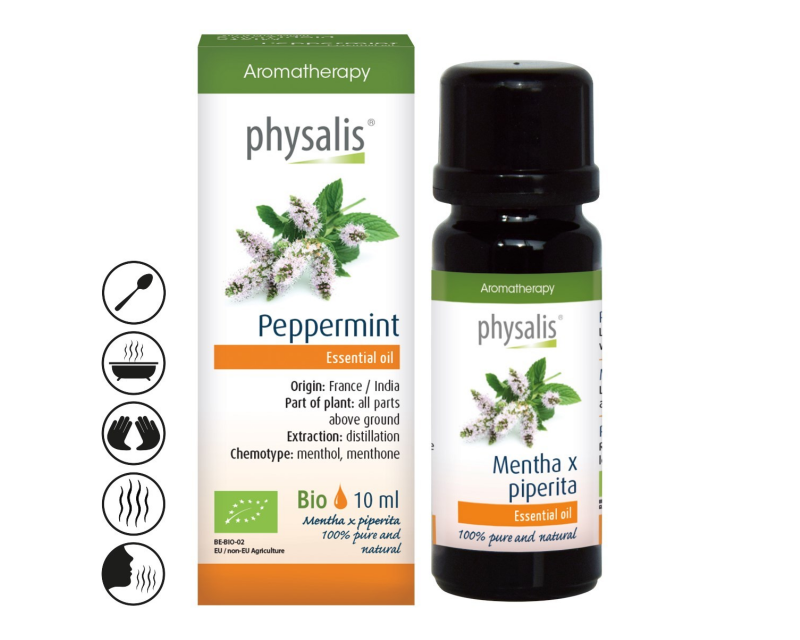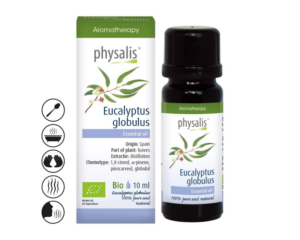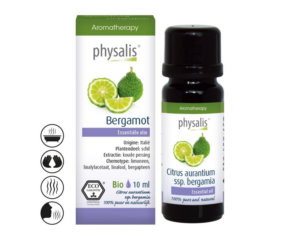Organic peppermint essential oil, 10 ml
8.00€
Plant part: all parts of a plant above ground
Method of extraction: distillation
Chemotype: menthol, menthone
Peppermint, bot Mentha x pipperita, is one of the most popular and well-known plant extracts in the world, and is widely used in the food industry, cosmetics, aroma and phytotherapy. Aromatherapy is most valued for its nervous system and digestive tonic, antimicrobial, anti-itch and pain-relieving properties. The high content of menthol and menthone in this essential oil gives it a distinctive fresh, cooling minty smell and taste.
Peppermint essential oil is used in aromatherapy:
- toning, revitalising, and banishing fatigue,
- ease a heavy head,
- for soothing itchy skin,
- to increase hair volume,
- reduce nausea,
- reduce abdominal discomfort,
- concentration,
- improve the endurance of athletes and travellers, helping them to endure journeys,
- gives a feeling of freshness and coolness on hot summer days.
It is an excellent natural remedy to breathe, purify and enrich the air in the home, in public spaces, in the workplace and in the sick room.
Usage:
For the skin: 5-10 drops in 10 ml of vegetable oil (coconut, almond, olive, etc.) for massage or bath.
In the evaporator: 5-10 drops according to your personal preference and the size of the room.
Naturally contains d-limonene, geraniol, citral, linalool, citronellol.
- Refreshes and cools on hot summer days – anoint the base of the skull, diffuse a few drops in a diffuser.
- When traveling, hiking, or feeling faint, put it on your sleeve and sniff it, breathe it in
- In case of a heavy head, anoint the temples and the base of the skull with pure oil (protect the eyes, do not apply close to the eyes)
- To increase hair volume or soothe sensitive scalp – add a few drops to a shampoo dose; 1k/sav oil mask or scalp massage – 2 drops in a tbsp coconut/sesame or special hair oil.
- Peppermint oil is an excellent tonic air freshener for the home or office – 2-3 drops can be vaporised in a diffuser; added to floor cleaning water, etc. (not to be used in patients with central nervous system diseases)
Information leaflet and instructions for use:
Essential oils (essential or aromatic oils) are the fragrant, volatile constituents of herbs, flowers, fruits, seeds etc. In aromatherapy, pure essential oils have a positive effect on our bodies when they are inhaled, ingested or applied to the skin. Essential oils can have a profound effect on our mood and health: they can help us relax, stimulate, calm our respiratory tract and more.
Enjoy essential oils safely, taking the following necessary precautions:
Essential oils are highly concentrated! Sometimes hundreds of kilos of fresh plants are needed to produce one kilo of oil. They must be used carefully and correctly (we advise you to consult a phytotherapy specialist). Incorrect use can be dangerous!
1. Keep them out of the reach of children!
2. Never exceed the recommended doses!
3. Some oils are suitable for external use only! Read the packaging!
4. Not recommended for babies and children under 3 years of age!
5. Not recommended for use during pregnancy and lactation!
6. Essential oils should be used with caution in epilepsy, asthma and heart disease.
7. If you accidentally ingest a large amount of essential oil, take a tablespoon of vegetable oil and contact the Poison Control Centre.
8. When taking essential oils orally, mix them with a vegetable oil; do not take them alone.
9. Never apply or drip undiluted essential oils directly onto the skin. Dilute with a little vegetable oil or a neutral cream, gel or shampoo; these can also be used in the bath.
10. Several ingredients naturally occurring in essential oils may cause allergic reactions in hypersensitive people (e.g. citral, d-limonene, linalool, geraniol, citronellol, etc.). Read the warnings on the packaging! Tip: For sensitive, allergic skin, first add a drop of oil to a vegetable oil (such as sweet almond or coconut oil) and apply it to the inner part of the elbow. Wait 24 hours. If there are no signs of redness, itching or irritation, the oil can be used.
11. All citrus oils (made from bergamot, orange, lemon, grapefruit or tangerine peel) are photosensitive! Avoid sun exposure and do not use a sunbed for at least 12 hours after you have applied the citrus oil to your skin!
12. Avoid contact with eyes, nasal mucous membranes! When this happens, rinse thoroughly with clean water. If irritation or a wound is visible, a doctor should be contacted.
13. Not suitable for use as ear or eye drops.
14. Thyme, savoury, oregano, clove, wintergreen and cinnamon essential oils are irritating. Do not rinse, boil or use these oils undiluted on the skin!
15. Continuous use or consumption of essential oils is not recommended.
16. Essential oils are flammable and volatile. Do not store them at high temperatures!
17. Store essential oils in a cool, dark place in a tightly closed bottle!
18. Poisons Information Office: +37052362052 or https://www.apsinuodijau.lt.
Physalis® essential oils: quality guarantees
– 100% pure, natural and organic. Not chemically treated, not modified, not mixed with other essential oils, not diluted, not rectified (= adjusted to a standard composition using chemicals or by re-distillation of the essential oil for certain concentrated components), not reconstituted. non-terpeneated.
– Verification of the identity and quality of each batch by means of gas chromatographic analysis (composition of the oil and identification of the different components), physical examination (density, refractive index, optical rotation) and organoleptic examination (smell, taste).
– The packaging of the product indicates the exact botanical species (Latin name), the origin, the parts of the plant used (leaves, flowers, twigs, seeds, roots, etc.), the method of extraction (slow and complete steam distillation under low pressure or cold pressing), the chemotype (biochemical specificity, specific components of each essential oil).
Oral use
Although this use of essential oils can be very effective, we advise you not to experiment! We advise you to do this only under the supervision of a therapist. It is essential to have a very good knowledge of different oils, as some essential oils can be very dangerous if used incorrectly! We strongly recommend that essential oils are not used by children (-6 years) and pregnant women. Never take more than 2 drops at a time and never use more than twice a day.
Massage, bath, shower
Essential oils are ideal for use during a massage, lying in a soothing bath or taking a refreshing shower. They easily penetrate the skin, giving a positive effect. First, dilute the oil with a small amount of vegetable oil (such as coconut or sweet almond).
Recommendations:
– Body massage: 5-10 drops in 10 ml vegetable oil.
– Facial oil or cream: 2 drops to 10 ml vegetable oil or cream.
– Aromatic bath: 6-10 drops in 10 ml of vegetable oil, neutral bath milk or foam;
– Shampoo: 2-4 drops in 10 ml vegetable oil.
– Topical use: much higher concentrations (> 20%) are used in certain cases; for example, for muscle and joint applications, antiparasitic use, etc.
This type of use should only be carried out under the supervision of a therapist!
Evaporation
Essential oils add a pleasant scent to your living and working spaces. Preferably use electric steamers, which do not heat the oil and produce very fine vapours. Steaming for 15 minutes every hour is sufficient.
Inhalations
It is a great way to soothe the throat and respiratory tract. Essential oils cleanse the nose and make breathing easier. Add 2-3 drops to a bowl of hot water and breathe in the steam for 5-10 minutes (note: avoid irritating oils!)
Instructions for use Link to the description on the manufacturer’s website with downloadable instructions for use (English, Polish): Eucalyptus globulus | Physalis (physalishealth.com)
Organic peppermint essential oil (Mentha x piperita) 100%
-
Store in a cool, dark place in a tightly sealed bottle


